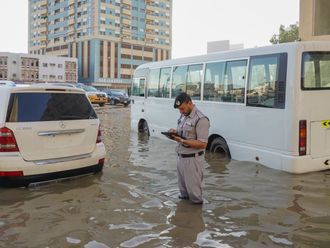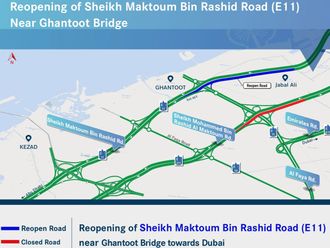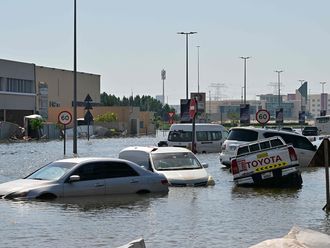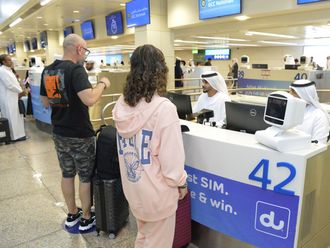Dubai: Remote kill switch and tracking technology has reduced theft of cars, accidents and misuse involving rental and commercial vehicles, industry sources said.
The devices allow car rental companies to track their cars in real time and remotely cut off the fuel supply to the engine or stall the ignition. The devices are installed by specialised firms authorised to provide the service to companies such as car rental agencies, tour operators and transport fleets.
Roy Nasrallah, general manager of Geo and Logic GIS Solutions (G&L), said the devices also send alerts if the car is speeding, been idle for too long, being moved while off, or even if it enters a garage or impound lot.
He added that new rules from Dubai Police require companies with rental, limo, transport or tour fleets to have the devices installed by authorised specialists. “If you don’t have a certificate from the installer saying the device has been installed, you won’t be able to re-register your car,” Nasrallah said. A statement from Dubai’s Roads and Transport Authority confirmed the vehicles will not be re-registered if the devices are not installed.
“This technology, since 2009, has reduced thefts and fatal accidents. There are too many added values associated with it. It’s not just about simply tracking the car’s location.”
At least three car rental agencies confirmed that successful theft attempts have fallen to virtually zero in the past few years. “Under the law, you’re not allowed to take the [rental] car outside the UAE, except by written permission from the owner. We had one car stolen and taken to Oman but this has stopped in the last five years or so, because we know where our cars are — and we can kill the engine any time remotely,” a rental agent said on condition on anonymity.
A 39-year-old British former expat, who only gave his initials, B.P., said his father, who was on a visit to the UAE, had taken a rental car to Oman without realising it was against the rules.
“My father, who is an engineer, couldn’t figure out why the car died when he entered Oman. He was at the border checkpoint and it wouldn’t turn back on. I got a call from the rental company saying they had remotely turned off the car. They refused to turn it back on. I had to pay around Dh2,000 to have it towed back to the UAE,” B.P. said.
Nasrallah said the technology has helped authorities solve crime cases. One Dubai luxury car dealer who had a Ferrari and Porsche stolen was able to alert police to a gang operation that was dismantling cars and exporting them as spare parts.
“Our tracker showed the signals were coming from inside a shipping container at Jebel Ali port. When the client went there, he found his cars had been taken apart. There were other cars there too. The police was alerted and they broke the theft ring,” Nasrallah added.
In some cases, customers of rental cars disappear without settling their dues, ditching the car at airport parking lots. Nasrallah said some customers also fail to disclose accidents and try to have the car repaired at workshops with a police accident report. Some cars are also impounded on the spot for serious traffic offences.
“All these cases can be solved now because the device will alert you and you can go and retrieve your car, at the very least. In one instance, we got an alert that a rental car was moving out of the company’s main office parking lot at 4am in the morning — after working hours. We called the owner and told him to follow the car. The police was called and the thief was arrested.”
He added: “Another customer was flashed by 20 radars, doing 200km/h. There have also been cases where customers speed off-road in the desert, against the rules. Other customers don’t return the car for days after their contract period ends. They don’t answer their phones, but we know where they are and the company can go and retrieve their car.”
Since the technology works on the GPS, GPRS and the GSM networks, using roaming technology similar to mobile phone SIM cards, the car can be traced “anywhere in the world where there is roaming facility”.
Apart from foul play, the technology also helps in retrieving cars that have broken down or faced battery failure.
It costs around Dh800 per car per year to renew the subscription to the service, Nasrallah said.
- With inputs from Shafaat Shahbandari, Staff Reporter












